Dear Graduate Student…
Dear Graduate Student, Here we are, well into another semester. Many of you are in the field already or preparing for the field. If you are already there,…
Dear Graduate Student, Here we are, well into another semester. Many of you are in the field already or preparing for the field. If you are already there,…
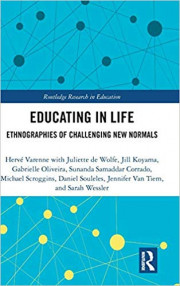
https://www.routledge.com/Educating-in-Life-Educational-Theory-and-the-Emergence-of-New-Normals/Varenne/p/book/9781138313668 Ilana Gershon: This book contains a wide range of ethnographic topics – h…
Food without Borders: Proustian Anthropology and Collaborative Storytelling with an Experimental Sixth-Grade Class in Paris Dr. Christy Shields-Argelès, in collaboration with Beth Grannis “Food withou…
Anthrodendum welcomes guest blogger Greg Beckett. He is assistant professor of anthropology at Western University (Canada) where his work focuses on crisis, disaster, and humanitarian intervention in …
We met some years back at a scholarly conference where we were both presenting papers on a common theme: health care in the service of the law. We…
The US ‘tech sector’ has been a major source of toxicant releases. These interactive maps show the chemical legacy of electronic manufacturing in the US.
By Samantha MacBride There are a series of assumptions behind the familiar assertion that recycling saves resources and energy, and in so doing, protects the environment. These assumptions…

Writing inequalities Writing disability through rewriting representations of inequality and vulnerability. Image: R. Cupitt 2018 When writing inequalities, the language we use and our writings betray …
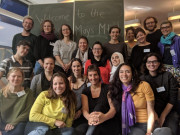
Hide Press Release (6 Less Words) Ursula Probst, Karoline Buchner, Max Schnepf Copyright: Ritti Soncco Introduction: Focusing on Junior Scholars’ Perspectives In medical anthropology, participatory act…
Attacks on research have become routinized and institutionalized. Here is our step-by-step guide on what to do if you and your research are attacked.

The team of the joint Finnish-Russian project studying well-being among youth in Arctic Ria Adams presenting her work within WOLLIE on opportunities and threats for young people’s well-being,…
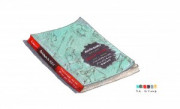
By Karina Kuschnir This review was first published in Portuguese by Mana, 24 (1), 271-275. During these somewhat discouraging times, Andrew Causey offers us a gift. Drawn to…
Editor’s Note: This is a co-authored piece written by Spencer Ruelos and Amanda Cullen, both PhD students in the Informatics department at UC Irvine. Introduction Most work at…
Co-Authored by Alex Nading, Josh Fisher, and Chantelle Falconer What does it mean to find value in urban ecologies? This question sparked our collaborative research in Ciudad Sandino,…
2017 They say they can’t tell if I have malaria or not, maybe it’s something else. “Just lie down, try the drip, and see if it helps”. I…
Design and anthropology have been seen together with increasing frequency over the last few years, but how do design and anthropology fit together in relation to industry? And,…
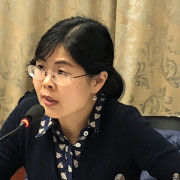
This post is the next in my series of reports on the trip to China that American museum colleagues and I took in December 2017. The Beijing posts…
A Reflection on Group Fieldwork. There is a high-fever-pitch limbic sensation of simultaneously registering something you heard or read as wrong, and the antsy, itchy, compulsion to raise…
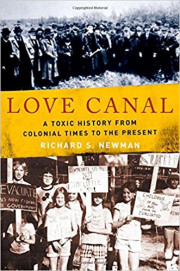
Newman’s activists press for environmental change imbedded with critiques of capitalism and industrialization, racial injustice, and its global implications. This view distorts the complexity of histo…

A trench amphipod, Hirondellea gigas, from the deepest place on Earth: Challenger Deep in the Mariana Trench (10,890m). Alan Jamieson, Newcastle University, Author provided Alan Jamieson, Newcastle Un…

Edited by two former SAFN presidents and containing articles by many SAFN members, the new three volume set “Research Methods for Anthropological Studies of Food and Nutrition” is…
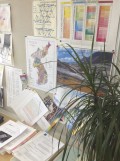
When reflecting on these intertwined day-to-day, multi-decade, centurial, and multi-millennial horizons of nuclear waste risk all at the same time, a different set of sensibilities emerges. Namely, it…